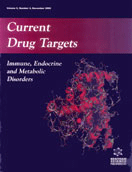Abstract
We previously reported that surface-linked liposomal antigen induced IgEselective unresponsiveness. The results were consistent even when different coupling procedures for antigen with liposomes, or for liposomes with different lipid components, were employed. During the course of an investigation intended to clarify the mechanism of IgE-selective unresponsiveness induced by surface-coupled liposomal antigens, we discovered an alternative approach to regulate the production of IgE, one that is independent of the activity of T-cells. Immunization of mice with OVA-liposome conjugates induced IgE- selective unresponsiveness without apparent Th1 polarization. Neither interleukin-12 (IL-12), IL-10, nor CD8+ T-cells participated in the regulation. Further, CD4+ T-cells of mice immunized with OVA-liposome were capable of inducing antigen-specific IgE synthesis in athymic nude mice immunized with alum-adsorbed OVA. On the other hand, immunization of the recipient mice with OVAliposome did not induce anti-OVA IgE production, even when CD4+ T-cells of mice immunized with alumadsorbed OVA were transferred. In the secondary immune response, OVA-liposome enhanced anti-OVA IgG antibody production but not the ongoing IgE production, suggesting that the IgE-selective unresponsiveness induced by the liposomal antigen involved direct effects on IgE but not IgG switching in vivo. These results suggest the role of an alternative mechanism, one not involving T-cells, in the regulation of IgE synthesis, and raise the possibility that surface-linked liposomal antigen is potentially applicable for the development of a novel vaccine that induces the least IgE synthesis. Moreover, given the relatively low allergic response to and increased antigenicity of the allergen, this form of antigen preparation would be applicable to allergen immunotherapy.



















